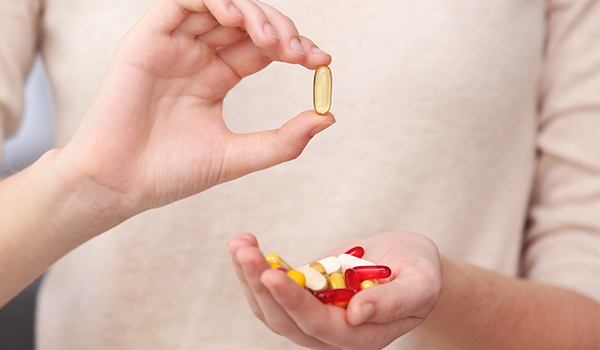
If you are young and are eating a relatively healthy diet, then chances are that you have not given any thought to taking vitamin supplements. After all, those are only for children or old people and for those who eat a poor diet. You don’t fit into any of that category. You are a healthy 20-year-old woman who has no need for vitamin supplements. Except that that is not always the case. The problem with vitamin deficiencies is that they are quite difficult to spot. Until your body starts showing obvious symptoms, more often than not vitamin deficiency goes unnoticed. It is very essential that you provide your body with all the necessary vitamins to enable it to function at its optimal level. In order to do this, in addition to following a healthy diet, you may have to turn to vitamin supplements to ensure your body gets its daily quota of essential vitamins.
Let me first stress the need for you to consult with your doctor before you start taking vitamin supplements. Self-medication, even with something as innocuous as vitamin supplements, is not advisable and should be avoided.
So what vitamins are most crucial for a woman in her twenties and why?
Vitamin C
In your twenties, you are at greater risk of anaemia, caused due to low levels of iron. Vitamin C helps the body absorb the iron better (if taken at the same time as the iron-rich food or supplement). Vitamin C is also responsible for the production of collagen, which will help keep your skin looking young and healthy. Ideally, a twenty-year-old woman requires a daily intake of 75 milligrams of vitamin C. You will need more if you’re pregnant, breast-feeding, or are a smoker. Consult your doctor to know how much you will need and what supplement you can take to ensure you get it on a daily basis.
Vitamin K
Vitamin K is another crucial vitamin for those in their twenties. It plays a vital role in making blood clot and helping in the formation of scabs when you’re injured. If you are running low on vitamin K, you run the risk of having overly heavy bleeding during your period. The recommended daily intake of vitamin K for woman in their twenties is 90 micrograms.
[sc:mediad]
Vitamin D
Vitamin D aids your body in calcium absorption. This in turn helps keep your bones strong and reduces your risk of getting osteoporosis as you get older. Low levels of vitamin D could lead to brittle bones and even lead to chronic bone pain. So ensure you get your daily recommended dose of vitamin D, which is 15 micrograms.
Folic Acid
Whether or not you’re considering having children, you need to ensure you meet your recommended dosage of folic acid. It reduces the risk of neural tube defects (that typically occur during the first few weeks of pregnancy). It also helps in regular cell growth and cell formation. Ideally, you need 400 micrograms of folic acid every day.
As mentioned earlier, consult your doctor before you start taking vitamin supplements. And if you have any symptoms such as feeling tired and drained out or having heavy periods, ask your doctor to test you for vitamin deficiencies to see if there is any connection between the symptoms your body is displaying and your vitamin deficiency. While you can get sufficient vitamin from your food, sometimes you need a little boost to meet your recommended daily intake of a particular vitamin or to help your body absorb a particular nutrient. In such instances, vitamin supplements are quite a boon. Use them responsibly and with care for a healthy lifestyle.
